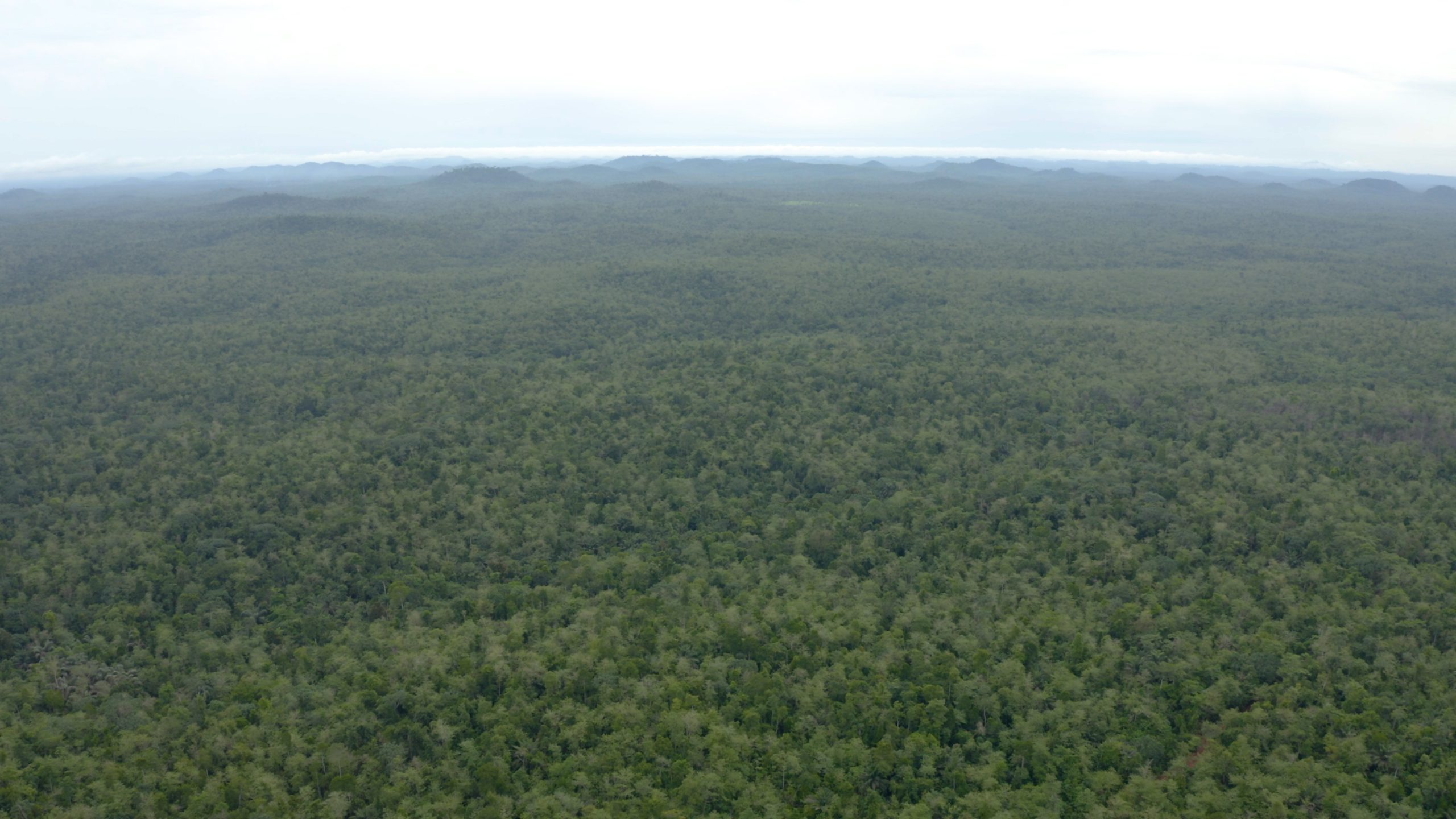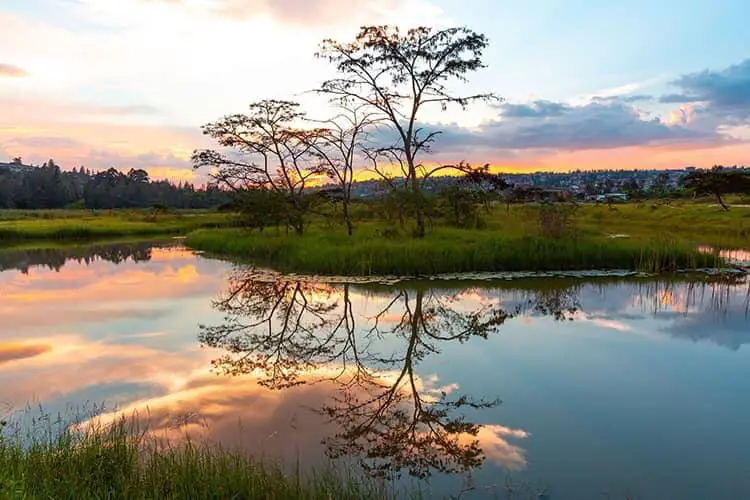Healthy forests, healthy planet, healthy people—protecting nature protects us all.
March 21, 2025 – (Rwanda) Today, on International Day of Forests, we emphasise not only the critical role forests play for wildlife but also how their preservation is vital for human survival.
This year’s theme, “Forests and Foods,” celebrates the pivotal roles forests play in food security, nutrition, and livelihoods. Forests sustain life – providing food, fuel, medicinal ingredients, income and employment.
They protect water resources, sequesters carbon emissions from the atmosphere, supports soil fertility and facilitates crop pollination.
A shining example of forest conservation success is Rwanda—a country demonstrating exemplary commitment to protecting its forests.
Rwanda has made significant strides in protecting its biodiversity and forest ecosystems. Nyungwe National Park, one of Africa’s oldest and most ecologically significant rainforests, was officially inscribed as a UNESCO World Heritage Site in September 2023—a testament to the nation’s dedication to conservation.
Located in Rwanda’s Southern and Western Provinces, this pristine forest is home to an extraordinary diversity of life, including over 200 tree species, 300 bird species, and 13 primate species.
Beyond its rich biodiversity, Nyungwe plays a crucial role in climate regulation, air purification, and water security. Its forestry sector also provides employment for thousands, spanning roles from park rangers and conservationists to sustainable agroforestry practitioners.
Rwanda’s Forest Protection Initiatives
The Rwandan government continues to implement comprehensive conservation measures, including:
Strict legal protections within national parks limit human activities and prevent forest degradation.
Dedicated rangers actively patrol protected areas, removing traps and snares to combat poaching.
Reforestation initiatives restore degraded landscapes while creating employment opportunities for local communities.
Community engagement programs empower residents through education and conservation partnerships.
Sustainable ecotourism generates vital revenue to support both conservation efforts and local livelihoods.
Why Forests Matter
Globally, forests and trees play a pivotal role in sustaining life. Here’s why protecting them is crucial:
Food Security: Forests and trees are a rich source of nuts, fruits, seeds, roots, tubers, leaves, mushrooms, honey, cacao pods, meat, and insects, providing essential nutrients to people’s diets.
Livelihoods: Approximately 1.6 billion people, or 25% of the global population, rely on forests for their subsistence needs, livelihoods, employment, and income.
Water Security: Forest watersheds supply freshwater to over 85 percent of the world’s major cities.
Climate regulation: Forests are the lungs of the planet as trees absorb CO₂ (carbon dioxide), a major greenhouse gas, from the atmosphere. This mitigates climate change and provides clean oxygen to breathe.
Disaster Mitigation: Forests stabilize soil, buffer coastal communities against cyclones, absorb stormwater, and reduce wildfire spread with fire-resistant bark.
Biodiversity Conservation: Forests house 80% of the world’s terrestrial species of animals, plants and insects, including many endangered ones. They provide refuge, food, and shelter for countless species, playing a key role in conserving life on the planet.
Economic Importance: About 1.6 billion people depend on forests to survive as they support various industries, from logging and carpentry to sustainable agroforestry, tourism, and herbal medicine.
Despite their immense benefits, forests face growing threats from deforestation and habitat loss due to agricultural expansion, urban development, and illegal logging.
In fact, Africa’s forests are disappearing twice as fast as the global average! This not only threatens biodiversity but also jeopardizes the livelihoods of those dependent on forest resources.
Take Action: By prioritizing environmental stewardship, Rwanda continues to lead by example in safeguarding its natural heritage for future generations. Through innovation and collaboration, we can create a sustainable future where forests thrive. Here’s how you can take action to help protect Rwanda’s forests:
Respect and protect natural habitats and avoid activities that contribute to habitat destruction.
Support reforestation by joining tree-planting campaigns.
Visit national parks and protected forests to explore its natural beauty.
Reduce, reuse, and recycle materials to minimise waste and lessen pressure on forest resources.
Prevent unnecessary bonfires which can trigger devastating forest fires and release emissions.
Every action – big or small – helps protect biodiversity, secure livelihoods, and combat climate change. Because protecting nature protects us all.










